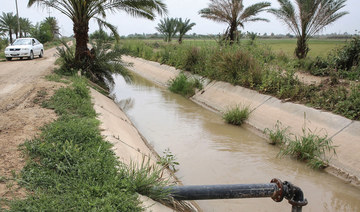DUBAI: In March, Iraq became the first country in the Middle East to join the UN Water Convention.
It is unsurprising considering the global climate change crisis and water scarcity in Iraq.
“Iraq faces a real water crisis,” Abdul Latif Rashid, Iraq’s president, said at the UN 2023 Water Conference. Over the past 40 years, water flows from the Euphrates and Tigris, which provide up to 98 percent of Iraq’s surface water, have decreased by 30 to 40 percent, he said.
This prompted Jordan-based podcast company Sowt to research and investigate the issue that affects the water future of Iraq through its show “Ahraz.”
“Since its inception, ‘Ahraz’ has focused on true crimes in the Arab region,” Ahmed Eman Zakaria, producer and editor of this season, told Arab News.
The first season of the show focused on the murder of the Egyptian bishop Anba Epiphanius in 2018, and the second season took listeners to Syria, where the show followed the crimes of women being tortured in a detention center.
“The third season is quite different,” Zakaria said. The theme of it is water crimes, but it is more than that.”
The first episode starts in southern Iraq, where a tribal murder was committed over water conflicts. The following episodes investigate further, revealing it is about more than “tribes and clans” — it is about “corruption, governments and regional interventions,” Zakaria said.
The show takes listeners from southern Iraq to Baghdad, where political decisions on water issues are made, and on to the wider region as it explores the Turkish role in Iraq’s water crisis.
“We believe that such topics are crucial to informing our audiences about what happens in our region, especially that climate change is the main interest of world leaders and political regimes,” Zakaria said.














